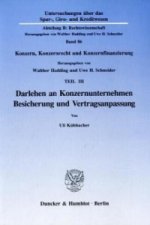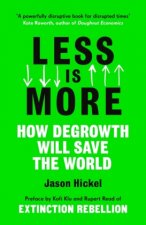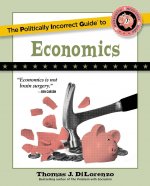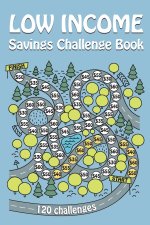
Kód: 01502890
Classification and Clustering in Business Cycle Analysis.
Autor Ullrich Heilemann, Claus Weihs
The analysis of cyclical macroeconomic phenomena is an important field of econometric research. In the recent past, research interests have de-emphasized quantitative forecasting exercises and have addressed the qualitative diagno ... celý popis
- Jazyk:
 Němčina
Němčina - Vazba: Brožovaná
- Počet stran: 166
Nakladatelství: Duncker & Humblot, 2007
- Více informací o knize

1848 Kč
Dostupnost:
50 % šance Máme informaci, že by titul mohl být dostupný. Na základě vaší objednávky se ho pokusíme do 6 týdnů zajistit.
Máme informaci, že by titul mohl být dostupný. Na základě vaší objednávky se ho pokusíme do 6 týdnů zajistit.Prohledáme celý svět
Mohlo by se vám také líbit
-

Die Zweispurigkeit des öffentlichen Dienstes.
1255 Kč -

Darlehen an Konzernunternehmen.
1848 Kč -

Mythos Kohle
634 Kč -

Das Stunden-Buch
171 Kč -

EquiClassic-Work
636 Kč -

Torch Against the Night
428 Kč -

The Complete Human Body
938 Kč -

Anxious Person's Guide to Non-Monogamy
456 Kč -

Rok stříbrných koní
273 Kč -

Hrajeme si, Nezlobíme
79 Kč -

Lonely Planet The Travel Book
645 Kč -

The Song of the Thrush
377 Kč -

Women Without Men
346 Kč -

Suicide and Society in India
1098 Kč
Darujte tuto knihu ještě dnes
- Objednejte knihu a zvolte Zaslat jako dárek.
- Obratem obdržíte darovací poukaz na knihu, který můžete ihned předat obdarovanému.
- Knihu zašleme na adresu obdarovaného, o nic se nestaráte.
Informovat o naskladnění knihy
Zadejte do formuláře e-mailovou adresu a jakmile knihu naskladníme, zašleme vám o tom zprávu. Pohlídáme vše za vás.
Více informací o knize Classification and Clustering in Business Cycle Analysis.
Nákupem získáte 185 bodů
 Anotace knihy
Anotace knihy
The analysis of cyclical macroeconomic phenomena is an important field of econometric research. In the recent past, research interests have de-emphasized quantitative forecasting exercises and have addressed the qualitative diagnosis of the relative stance of the economy regarding "upswing", "recession", or "boom" periods, i. e. the classification of the state of the economy into a limited number of discrete states. In this context the principal challenge is to reduce the multifaceted and sometimes abundant quantitative information about the business cycle to such qualitative statements in an efficient way. For more than six years this task was the focus of the project "Multivariate determination and analysis of business cycles" within the SFB 475 "Reduction of complexity in multivariate data structures", funded by the German Research Foundation (DFG).§The necessity for complexity reduction is, of course, not unique to business cycle analysis but is studied in many fields and in a number of ways. This broad interest in the reduction of problem dimensionality and in the appropriate combination of data and of theory caused the RWI Essen and the Statistical Department of the University of Dortmund in January 2002 to hold a workshop at the RWI Essen where the findings of this and similar projects were presented and discussed. The present publication collects revised versions of the papers presented at this workshop. Although the workshop took place some five years ago, these papers mark an importent juncture in the development of business cycle research.The analysis of cyclical macroeconomic phenomena is an important field of econometric research. In the recent past, research interests have de-emphasized quantitative forecasting exercises and have addressed the qualitative diagnosis of the relative stance of the economy regarding "upswing", "recession", or "boom" periods, i. e. the classification of the state of the economy into a limited number of discrete states. In this context the principal challenge is to reduce the multifaceted and sometimes abundant quantitative information about the business cycle to such qualitative statements in an efficient way. For more than six years this task was the focus of the project "Multivariate determination and analysis of business cycles" within the SFB 475 "Reduction of complexity in multivariate data structures", funded by the German Research Foundation (DFG).§The necessity for complexity reduction is, of course, not unique to business cycle analysis but is studied in many fields and in a number of ways. This broad interest in the reduction of problem dimensionality and in the appropriate combination of data and of theory caused the RWI Essen and the Statistical Department of the University of Dortmund in January 2002 to hold a workshop at the RWI Essen where the findings of this and similar projects were presented and discussed. The presentpublication collects revised versions of the papers presented at this workshop. Although the workshop took place some five years ago, these papers mark an importent juncture in the development of business cycle research.
 Parametry knihy
Parametry knihy
Zařazení knihy Knihy v němčině Sozialwissenschaften, Recht, Wirtschaft Wirtschaft Volkswirtschaft
1848 Kč
- Plný název: Classification and Clustering in Business Cycle Analysis.
- Autor: Ullrich Heilemann, Claus Weihs
- Jazyk:
 Němčina
Němčina - Vazba: Brožovaná
- Počet stran: 166
- EAN: 9783428124251
- ISBN: 3428124251
- ID: 01502890
- Nakladatelství: Duncker & Humblot
- Hmotnost: 278 g
- Rozměry: 240 × 165 × 12 mm
- Rok vydání: 2007
Oblíbené z jiného soudku
-

Poor Charlie's Almanack: The Essential Wit and Wisdom of Charles T. Munger
626 Kč -

Broken Money
513 Kč -

Marketing 6.0
523 Kč -

Confessions of an Economic Hit Man, 3rd Edition
458 Kč -

Supercommunicators: The Power of Conversation and Hidden Language of Connection
559 Kč -

The Paypal Wars: Battles with Ebay, the Media, the Mafia, and the Rest of Planet Earth
391 Kč -

Forex Trading
637 Kč -

Jolt Effect
636 Kč -

Chokepoint Capitalism
592 Kč -

Das Kapital (Vollständige Gesamtausgabe)
637 Kč -

Talk Like TED
283 Kč -

What Color Is Your Parachute? 2023
410 Kč -

Less is More
283 Kč -

Fluke: Chance, Chaos, and Why Everything We Do Matters
376 Kč -

Meddicc
417 Kč -

Elliott Wave Principle
753 Kč -

Universal Principles of UX
708 Kč -

Change Your Questions, Change Your Life, 4th Edition
481 Kč -

Trade Wars Are Class Wars
413 Kč -

I'll Make You an Offer You Can't Refuse
344 Kč -

The Greatest Capitalist Who Ever Lived: Tom Watson Jr. and the Epic Story of How IBM Created the Digital Age
670 Kč -

Flying Blind
318 Kč -

Grow the Pie
391 Kč -

Science of Selling
357 Kč -

The Rise of Superman: Decoding the Science of Ultimate Human Performance
288 Kč -

Good Power
620 Kč -

The Prepared Leader: Emerge from Any Crisis More Resilient Than Before
363 Kč -

Steve Jobs
470 Kč -

The Good Enough Job: Reclaiming Life from Work
538 Kč -

Creativity, Inc. (the Expanded Edition): Overcoming the Unseen Forces That Stand in the Way of True Inspiration
594 Kč -

Body Language How to Read Any Body - The Secret To Nonverbal Communication To Understand & Influence In, Business, Sales, Online, Presenting & Public
532 Kč -

Politically Incorrect Guide to Economics
421 Kč -

Blood in the Machine: The Origins of the Rebellion Against Big Tech
640 Kč -

The ERG Handbook: Everything You Wanted to Know About ERGs but Didn't Know Who to Ask
605 Kč -

Technofeudalism: What Killed Capitalism
401 Kč -

Taming the Risk Hurricane
854 Kč -

BRICS
1358 Kč -

Vulture Capitalism
435 Kč -

The Genesis Book
613 Kč -

Work/Life Flywheel
439 Kč -

Finnair
465 Kč -

Low Income Savings Challenge Book
522 Kč -

Cathonomics
587 Kč -

The Man Who Broke Capitalism: How Jack Welch Gutted the Heartland and Crushed the Soul of Corporate America--And How to Undo His Legacy
294 Kč -

Мислення, швидке і повіль
331 Kč -

The Capitalist Manifesto
383 Kč -

The Economics of Inflation - A Study of Currency Depreciation in Post War Germany
486 Kč -

The Tech Contracts Handbook: Software Licenses, Cloud Computing Agreements, and Other It Contracts for Lawyers and Businesspeople
1203 Kč -

EURO-Collection Münzalbum. Bd.2
427 Kč
Osobní odběr Praha, Brno a 12903 dalších
Copyright ©2008-24 nejlevnejsi-knihy.cz Všechna práva vyhrazenaSoukromíCookies


 Vrácení do měsíce
Vrácení do měsíce 571 999 099 (8-15.30h)
571 999 099 (8-15.30h)